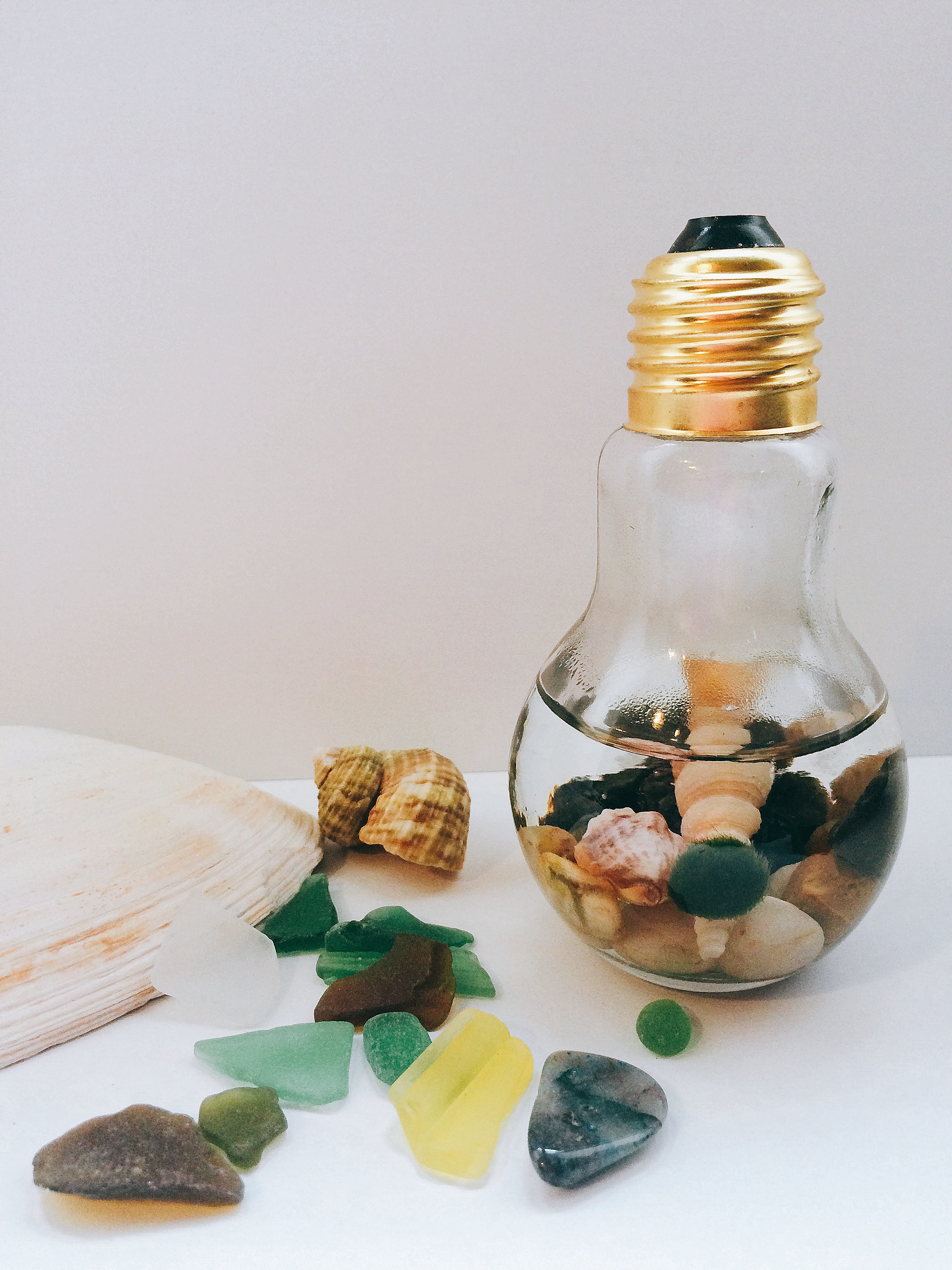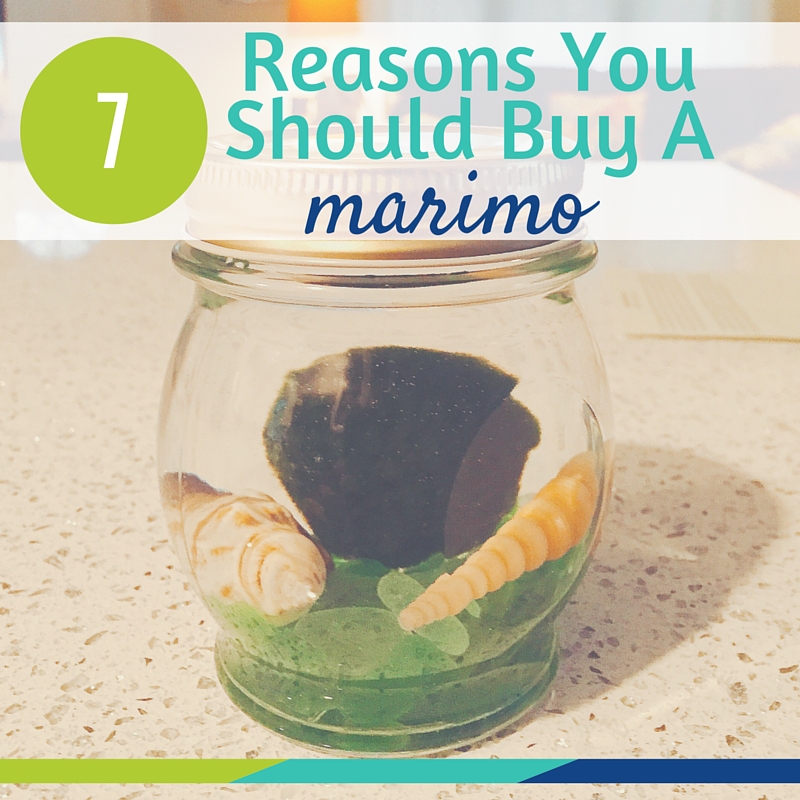When I was in Denver in May, I discovered a green algae known as Marimo Moss ("ball seaweed") in Japanese. It was being sold in cute little glass containers and I just had to have one.
They immediately reminded me of home - flinging seaweed at my sister in the Long Island Sound, collecting sea glass along the shore during long walks with my father, attempting to catch minnows in our hands as we wiggled our toes in the sand.
Before I even got home, I knew I wanted to create habitats for these unique little guys to sell on Peanut Butter Is My Boyfriend and at local craft fairs. I thought they would remind others of the amazing creations made possible by nature.
I did more research, and realized that marimo were even more unique than I had imagined.
Get ready for a 3 part series on everything you'd ever want to know about marimo - their history, how to care for them, and why you should buy one from my shop!
HOW MARIMO FORM
Marimo Moss are a living organism, growing slowly over a long period of time (around 5 mm each year for up to 200 years). They're a rare form of algae in fact, not moss. They form by rolling along the bottom of lakes which is how they develop their cute, spherical shape.
What's crazy is that there is no center to a marimo - they are pure algae through and through. They grow in the dark, murky bottoms of fresh water lakes and the rolling and floating allows all sides of a marimo to get the needed sunlight to grow into balls.
WHERE MARIMO THRIVE
Marimo are much more rare than I would have thought - they are only found in fresh water lakes in Japan, Estonia, Iceland, Scotland and Australia.
They are particularly abundant in two specific lakes - Lake Myvatn in Iceland and Lake Akan in Japan where marimo can grow particularly large - reaching up to 8-12 inches in diameter.
NAMES FOR MARIMO MOSS BALLS
Marimo was first coined in 1898 by a Japanese botanist named Tatsuhiko Kawakami but it's known by many other names as well.
- Cladophora ball
- Lake ball
- Mossimo
- Moss Balls
- Aegagropila Linnaei (genus & species where Aegagropila is Greek for "goat hair")
- Torasampe (Lake Gobline in Japanese)
- Tokarip (Lake Roller in Japanese)
- Japanese moss balls (at many aquarium stores)
- Kúluskítu (kúla = ball and skítur = muck in Iceland)
CONSERVATION EFFORTS
In Japan especially, marimo are considered extremely important. They have been a protected species since the 1920s and are deemed a "national treasure" with their home, Lake Akan, a national park. Every year the Ainu people who live near Lake Akan hold a three-day marimo festival on the second weekend of October featuring lectures on conservation, a parade, and a ceremony in which marimo are taken out in canoes and returned to the lake.
Likewise, in Iceland, Lake Myvatn has been protected as a nature reserve in an attempt to reverse the declining population or marimo.
MARIMO IN JAPANESE CULTURE
In Japan, marimo inspired the creation of a stuffed toy character known as Marimokkori!
The marimo sold in souvenir shops throughout Japan are formed using free floating filaments that break off from larger marimo. Taking a marimo from Lake Akan is prohibited given their "national treasure" status.
There is even ancient folklore surrounding marimo. According to legend, a tribal cheif's daughter ran away with her lover because they were forbidden to be together. They fell into the water and their spirits gave birth to the marimo. It's believed that their spirits are still embedded in the centers of marimo, the "love plant." Marimo, according to this story, can recognize true love and are therefore given as gifts between loved ones.
Marimo are often passed down through families from generation to generation and given to children as "pets." They are easy to care for, which I'll get into in my next post!
Please leave a comment if you're interested in purchasing your very own marimo :) You can click the "SHOP MARIMO" tab on the homepage to see the two I currently have available - with many more to come!
YOU MAY ALSO LIKE:






